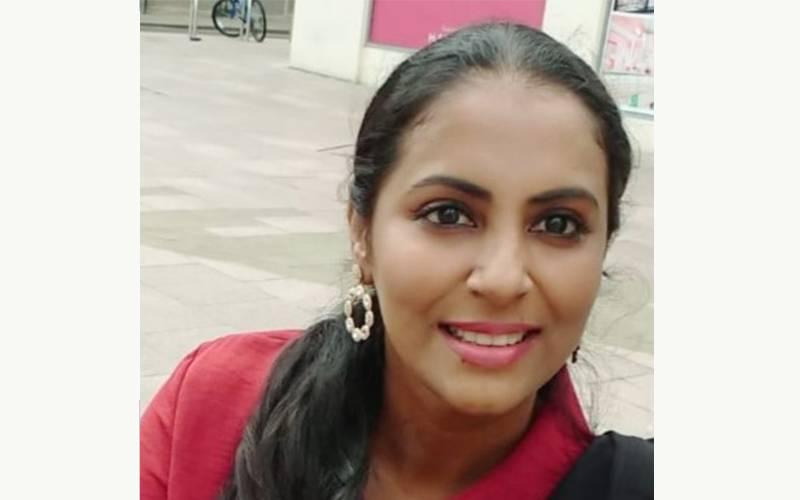This month we speak to Dr Rajendran to find out more about her research on social and spatial justice in cities, and how it is critical within the discourse of designing inclusive urban futures.
 What is your role and what does it involve?
What is your role and what does it involve?

I am a lecturer in Environmental and Spatial Equity and Co-director of Equality, Diversity and Inclusion at the Bartlett School of Architecture. I teach on the MA in Historic and Urban Environments (MAHUE) programme. My teaching and research explores social and spatial justice in cities and how it is critical within the discourse of planning and designing inclusive urban futures.
How are you improving the health of the public?
I am currently leading a British Council Funded project titled PLACE - Reimagining PubLic spAce designing and planning for COVID-19: Implications on hEalth and wellbeing, in collaboration with TU Dortmund Germany. The project idea was shaped during COVID-19, which has been characterised as the worst health crisis by the UN. It had a severe impact on every aspect of society, transforming everyday living, and the functioning of the economy, altering how cities are managed and governed, exacerbating social and spatial inequalities, and impacting public health and wellbeing.
Among various measures to protect the health of the public, restrictions on the use of public space and physical distancing have been key policy measures to reduce the transmission of COVID-19. These measures have fundamentally changed peoples’ relationships with public spaces and the way they engage and use them. This has significant implications for health and wellbeing and poses serious questions for the research, planning and design of public spaces for healthy, equitable living in post-pandemic futures.
Through knowledge exchange and capacity building workshops, our project brings together experts and early career researchers from diverse disciplinary backgrounds. These experts in public health, architecture, urban planning, design, policy, psychology, and arts are exploring the challenges, potential approaches, and strategies to enable health and wellbeing, through public space design, in a post-pandemic context in the UK and Germany.
What do you find most interesting or enjoyable about your work?
As an architect and urbanist, I have always been fascinated in studying the relationship between people and place interaction, and it has always been the crux of all my research pursuits. I enjoy engaging in research-led teaching within MAHUE around these pursuits, with students from diverse backgrounds, which offers a very enriching and satisfying learning and teaching experience.
How have cross-disciplinary collaborations shaped your research?
My past and current research advances theoretical and empirical work on how socio-spatial practices in city-making create exclusionary landscapes of sustainable development in the Global South and North. I have a keen interest in interdisciplinary and international research, particularly in a developing countries context, and I consistently strive for opportunities that allow me to expand my research interests in interdisciplinary urban studies. I like to explore approaches within the social sciences, humanities and arts, and engineering which offer new ways of understanding and studying people and environment interactions and their implications on healthy, inclusive and resilient community development. This has allowed me to develop a wealth of research methods and inter/transdisciplinary approaches for examining urbanisation phenomena and issues in diverse contexts.
What advice would you offer to others interested in developing cross-disciplinary research?
The challenges we face today, as a global community, are extremely complex and if we really want to engage in meaningful and impactful research, it is not just necessary, but critical, to break from our disciplinary silos. It is crucial to move beyond the existing conventional conceptualisations, methodological frameworks, discourses, and narratives to develop radical imaginaries through interdisciplinary and transdisciplinary collaborations.
What's next on the research horizon for you?
I have just returned from my short maternity break, so I have lots of projects and initiatives which I need to start from where I left off. One of them is a two-year British Academy Funded Knowledge Frontiers: International Interdisciplinary Research funding programme WHAT IS A GOOD CITY? I am also quite excited about my recent appointment as a co-chair for UCL's Environment Research domain and Academic Chair for the Climate and Health research group, which provides a great opportunity to initiate and develop ambitious research ideas and collaboration across faculties. As Co-director of EDI at the Bartlett School of Architecture, I am also quite keen to reconceptualise EDI strategy in research and teaching.
If you could make one change in the world today, what would it be?
As educators and researchers, we always aspire to create an impact through our work to make our world a better place. I think in the contemporary context, with ever increasing social and environmental inequality and inequity across the globe, if I could change one thing, it is to make people more compassionate so that we respond empathetically and collectively to any crisis at a local, national and global scale.
 Close
Close

